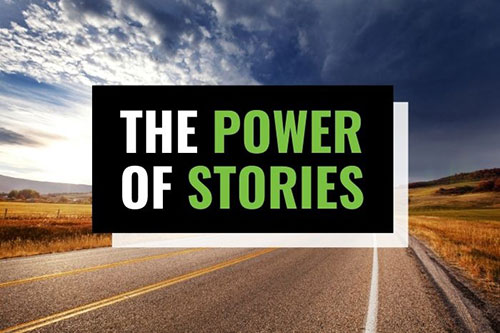The Power of Using Stories to Tell and Sell

Storytelling is the most powerful way to put ideas into the world. – Robert McKee
People have been putting ideas into the world with stories for thousands of years. From cave drawings that depicted the wild woolly mammoth chasing slow-running humans to your uncle’s famous tale of “the one that got away,” stories can educate and entertain and are the way we share information with each other.
In the world of business, many companies and brands also share information in the form of content marketing. A term that was coined about 10 years ago, content marketing is creating and sharing educational material such as blogs, social media posts, videos, websites, e-books, podcasts or infographics that is useful information to your audience. The content is not specifically about your products or services but is all about what is important to your audience and is intended to create interest in your products or services.
Yet not all content tells a story.
What is storytelling?
A story is an “account of imaginary or real people and events told for entertainment,” and storytelling is simply the art of writing, telling or showing it to communicate facts and messages.1
Just as beauty is in the eye of the beholder, storytelling is defined by your audience. However, all great stories have a hero, a conflict and a resolution.
In storytelling for marketing, the hero is always your customer or their experience with your product, service or brand and never your business, product or sales pitch. If your audience can see themselves in your character’s situation or experience, they will have empathy and understanding and be more likely to want to learn more about you.
Every great story also has a conflict or a problem to overcome, whether it’s an internal or external struggle. Without conflict, there is no story. Conflict creates an emotional connection with your audience that causes drama, tension or suspense.
For a story to be complete, the character’s conflict must be resolved in a way that makes sense and that your audience understands. The best stories are entertaining, educational, personal and memorable; they make us laugh, cry, think or spur action.
Why use storytelling in marketing?
When you have an interesting hero and enough emotions in a story, your audience is able to easily connect and engage, and you can use this device to help people understand how your products add value to their lives.
Think about the last commercial, ad or presentation you saw. Do you remember the ones with the slick product features or charts and tables, or do you remember the ones that told a story? Cognitive psychologist Jerome Bruner suggests we are 22 times more likely to remember a fact when it has been wrapped in a story. Why? Because stories have emotion, tension and are relatable and memorable. And your customers want them. In fact, 92% of consumers want ads that feel like stories.
By incorporating storytelling in your marketing and communications plan you weave a human element into your content, build a strong personal connection with your audience, foster trust and loyalty, and create opportunities for engagement that are different than traditional content creation.
Finding good stories (hint: they’re everywhere)
Poet and author David Whyte said, “Alertness is the hidden discipline of familiarity.” Put another way, to find good stories, pay attention. All along the customer journey from awareness to purchase to advocacy are opportunities to tell stories that create awareness, inspire action and affirm loyalty. Dig into your sales processes, talk to your new customers, really listen to your long-time customers, all to find out what made them find you, like you and keep buying from you. Other opportunities include new leadership, acquisitions and even mistakes and difficulties.
Final thoughts
Whether it’s a curiosity to learn more about your brand, information to solve a problem, empathy for the story’s characters, validation of what they already know about you, or surprise to learn something new, telling stories is a powerful and important element of marketing and communications planning. The best stories solve problems and transcend the product or service to your customer’s experience. Learn more about effective storytelling and how you can use it in your marketing efforts in episode 37 of OUTdrive, with Dana Kelchner.
Sources

